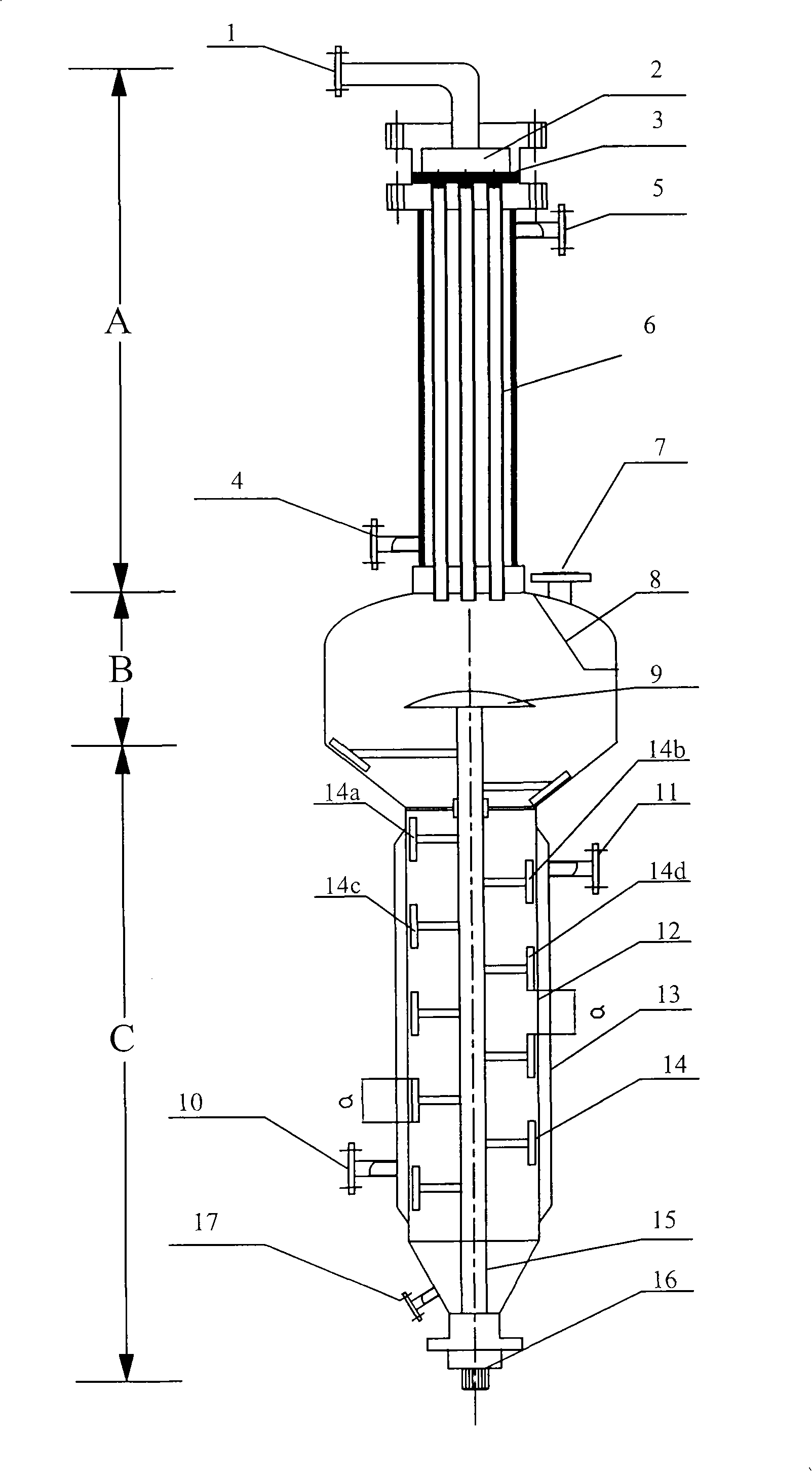Dry process of dodecyl sodium sulfate
A technology of sodium lauryl sulfate and drying process is applied in the preparation of sulfate, drying solid materials, heating to dry solid materials, etc., and can solve the problems of high water content in products, affecting product quality, and low operating temperature, etc. To achieve the effect of reducing dust pollution and product loss, reducing the amount of exhaust gas, and reasonable process design
- Summary
- Abstract
- Description
- Claims
- Application Information
AI Technical Summary
Problems solved by technology
Method used
Image
Examples
Embodiment 1
[0026] Example 1: After measuring sodium lauryl sulfate with a water content of 70%, preheat it to 75°C in a preheater, and use a gear pump to enter the material into a vacuum drying with steam in a semi-atomized state under a pressure of 1MPa Then it is thrown to the four walls by the swirl plate, slides along the four walls and enters the vacuum scraper drying part with a vacuum degree of 6.0kPa for secondary drying. The moisture content of the dried material is about 2.5%, and then according to the conventional process , Extruded and granulated by a twin-screw extruder to obtain needle-shaped sodium lauryl sulfate products.
Embodiment 2
[0027] Example 2: After metering sodium lauryl sulfate with a water content of 60%, preheat it to 70°C in the preheater, and use a gear pump to put the material into the vacuum drying tube in a semi-atomized state under a pressure of 1.0MPa , and then throw it to the four walls through the swirl plate, slide down along the four walls and enter the vacuum scraper dryer with a vacuum degree of 6.5kPa for secondary drying. The moisture content of the dried material is about 2.0%, and then according to the conventional process, It is extruded and granulated by a twin-screw extruder to obtain needle-shaped sodium lauryl sulfate products.
Embodiment 3
[0028] Example 3: After metering sodium lauryl sulfate with a water content of 30%, preheat it to 75°C in a preheater, and use a screw pump to enter the material into a vacuum drying tube in a semi-atomized state under a pressure of 0.8MPa , and then throw it to the four walls through the swirl plate, slide down along the four walls and enter the vacuum scraper dryer with a vacuum degree of 7.0kPa for secondary drying. The moisture content of the dried material is about 1.5%, and then according to the conventional process, It is extruded and granulated by a twin-screw extruder to obtain needle-shaped sodium lauryl sulfate products.
PUM
 Login to view more
Login to view more Abstract
Description
Claims
Application Information
 Login to view more
Login to view more - R&D Engineer
- R&D Manager
- IP Professional
- Industry Leading Data Capabilities
- Powerful AI technology
- Patent DNA Extraction
Browse by: Latest US Patents, China's latest patents, Technical Efficacy Thesaurus, Application Domain, Technology Topic.
© 2024 PatSnap. All rights reserved.Legal|Privacy policy|Modern Slavery Act Transparency Statement|Sitemap

